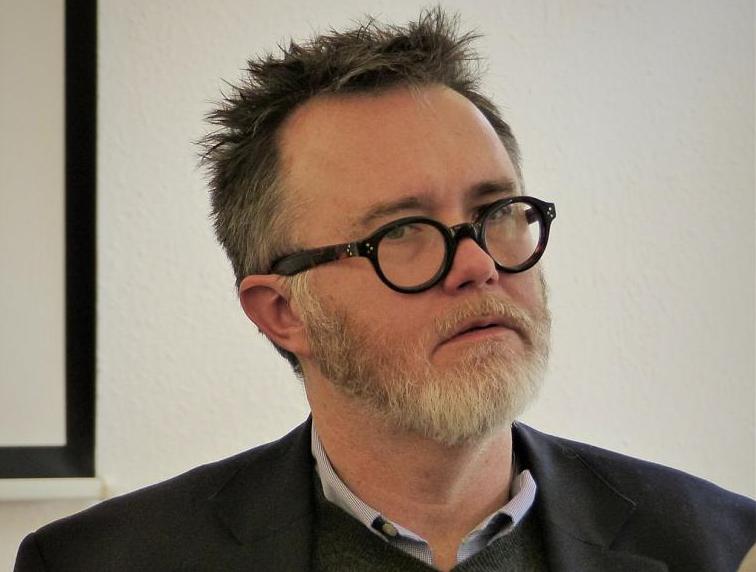I finally read Rod Dreher’s The Benedict Option: a Strategy for Christians in a Post-Christian Nation. It’s a good book, an important book, one that all Christians would do well to read. I just have a few friendly criticisms.
First of all, he shoots down what he considers to be Christians’ illusions. We are not going to transform the culture, at least in the foreseeable future. We are not going to exercise any kind of meaningful political power or influence. Christians will continue to be marginalized. Hostility will increase. Churches will shrink.
Rod (I know him slightly, so I’ll call him “Rod”) says that Christians have lost the culture wars. The defining moment was when the state of Indiana passed a mild religious freedom bill that would allow for Christians not to participate in LGBT weddings and other actions in violation of their conscience. As LGBT folks waxed indignant and promised boycotts, big business rallied to their support. So Indiana, whose governor was our current Vice-President Mike Pence, caved in and revoked the law. This should teach us that America’s problems are spiritual, and political and legislative action will not address them.
When corporate America, which once at least gave the impression of being conservative, supports the LGBT cause, the battle is over. Christians and other social conservatives who don’t approve of homosexuality are widely considered to be as evil as racists. In the near future, Rod says, conservative Christians can expect to be read out of polite society. Because of their pro-life beliefs and positions on sexual morality, Christians will likely be excluded from professions in medicine, academia, and other influential fields. We had better get used to working with our hands.
In that climate, what should Christians do? Rod draws the parallel with the barbarian invasions that destroyed Rome and ushered in centuries of anarchy. In those “dark ages,” St. Benedict founded his monastic order. Christians separated from their disordered society and strengthened their relationship with God. As they did so, the Benedictines kept education alive, preserved and transmitted the Greco-Roman heritage, and eventually converted the barbarians.
The Rule of St. Benedict, which the Benedictine monks followed and continue to follow today, sets forth an order to life, that countered the disordered world. It is built around prayer and work (the Benedictine motto being ora et labora). It includes spiritual discipline and asceticism (acts of self-denial). It includes reading, particularly the devotional reading of Scripture known as the lectio divina. Every day includes periods of silence. Not that the Benedictines are totally separate from the world: they also help those in need and became famous for their hospitality.
Rod believes in cultivating such communities—taking us inside a modern-day monastery and also introducing us to similar communities of both Catholics and Protestants—but he believes that “the Rule” can also be adapted and applied among laypeople.
His main point is that in order to survive and to prevail against the contemporary cultural hostility, Christians need to grow closer to Christ, turn churches into actual communities of believers, and cultivate their differences with the secular world. Instead of waging futile culture wars, Christians should devote themselves to building up Christian culture.
Christians often talk about “reaching the culture” without realizing that, having no distinct Christian culture of their own, they have been co-opted by the secular culture they seek to evangelize. Without a substantial Christian culture, it’s no wonder that our children are forgetting what it means to be Christian, and no surprise that we are not bringing in new converts. (p. 102)
To do so will require changes in our churches and a reinvigoration of our personal faith, an intentional cultivation of order, discipline, and community as an alternative to our culture’s current disorder, hedonism, and individual isolation. He writes,
If today’s churches are to survive the new Dark Age, they must stop “being normal.” We will need to commit ourselves more deeply to our faith, and we will need to do that in ways that seem odd to contemporary eyes. By rediscovering the past, recovering liturgical worship and asceticism, centering our lives on the church community, and tightening church discipline, we will, by God’s grace, again become the peculiar people we should always have been. The fruits of this focus on Christian formation will result not only in stronger Christians but in a new evangelism as the salt recovers its savor. (p. 102)
This is the Benedict option.
Bracing stuff. Hard truths. Motivating exhortations. Inspiring examples.
Instead of the usual “church growth” formula of urging churches to change so that they are more like the non-Christian world, Rod urges churches to change so that they are less like the non-Christian world. And Rod is savvier and less naïve than most “church growth” experts, as he explores just how caustic our culture has become, not only spiritually and morally, but also in the basic elements of being human.
I especially commend to you his chapter on education, with his advocacy of not just Christian schools but Classical Christian Education (something that I am involved with), and his chapter on sex, in which he says that “it’s imperative that we raise our kids to know that children are a blessing without qualification and that fertility is not a disease” (p. 211).
And yet, as a Lutheran, I have some qualms about the Benedict option. I recall Luther’s critique of monasticism, that we are not supposed to retreat from the world in an effort to build up our own holiness. Rather, we are to live out our faith in the world, with all of the conflicts and crosses this will mean.
Our relationship to God is based on His works for us in Christ, which we receive by Word and Sacrament. Whereupon God calls us in vocation to love and serve our neighbors in the family, the workplace, the church, and the state.
Holiness is not something we achieve through our meditations or asceticism; rather, it is a gift of God. Not that we don’t need discipline, order, and even suffering. We do. That happens not in self-chosen mortifications, but precisely in the world.
It is said that Luther transferred the disciplines of the monasteries—think of the Benedictine motto, “to pray and to work”—and brought them into the secular vocations. Fathers and mothers must pray and work as they carry out their parenthood. The farmer prays and works in the fields. The citizen prays and works in the nation. The pastor prays and works for his congregation.
Now this is largely what Rod is driving at, bringing the Rule of St. Benedict into the sphere of the laity. But he sometimes sounds as if lay people too should be separated from the sinful world in the same way that the monks were attempting. Earlier in the last century, evangelicals and fundamentalists tried that, with their refusal to get involved in the “dirty” world of politics, their parallel “Christian” entertainment industry, and their “Christian Yellow Pages” encouraging doing business only with fellow-Christians. But that kind of cultural retreat was not necessarily wise. For one thing, Christian withdrawal from the culture contributed to the de-Christianization of the culture. And the parallel Christian institutions and artifacts often became just as commercialized and shallow as their secularist counter-parts.
Christians would do well not to seek utopia in this temporal world that will pass away, whether in the prospect of building a perfect society or a perfect church. We will die soon enough, and then we will find that perfection forever.
I think that the separation that Rod is seeking, as well as the Christian influence that he still hopes for, can be found not so much in the monastic model as in the Lutheran doctrine of the Two Kingdoms. Yes, Christians are to be distinct from this world in God’s spiritual kingdom, refusing to conform to the culture and to the deceptions of the devil. At the same time, Christians are to be citizens of God’s temporal kingdom, through whom God works in vocation to care for His creation.
A key insight of the doctrine of the Two Kingdoms is that God is actively present, though in a hidden way, in the so-called secular order. And He is already ruling, even among those who do not know Him. He gives daily bread, grants children, provides protection, and exercises His love in the secular world in all of its secularity.
Which makes me wonder if Rod’s dire analysis completely holds true. As Charles Taylor, whom Rod quotes, has shown, the “secular hypothesis”—that modernity is accompanied by the decline of religion—is not correct. We learn that even supposed secularists have more religious beliefs than we have realized. As we blogged about, LGBT folks, for all of their conflict with Christians, are surprisingly religious, with most of them professing Christianity, though sometimes, ironically, in a closeted way. Even the Nones tend to believe in God and pray. Over 80% of Americans profess Christianity, with most of the rest holding to Judaism, Islam, or some other traditional faith. Only 3% of Americans are atheists.
How is that secularism? To be sure, Rod’s criticisms of Christians not knowing much about their faith and failing to live it out consistently are valid, and rightly apply throughout society.
Can it be that the secularism and the hostility to faith is confined to a tiny culture-making elite? Our ruling class, which dominates the media, academia, and the entertainment industry, but which is out of touch with most Americans? Might this attenuated ruling class eventually collapse of its own internal contradictions?
Already journalism, though it has a loud voice, is in trouble, with the decline in readers and the financial problems of newspapers. Hollywood’s own sexual permissiveness is bringing about its ruin with the #MeToo movement. The prestige of communications technology and social media is tarnished by hacking scandals and the proliferation of fake news. As for academia, the universities have adopted a type of self-destructive Stalinism that shuts down intellectual discourse and undermines learning.
And how long can we really go against nature, as in our infertile sexual practices and the belief that we can change our sex at will? Nature always, eventually, asserts itself.
Rod’s book came out last year, when the Christian baker was being punished for refusing to bake a cake for a same-sex wedding, and he warns that anti-discrimination statutes will shut down religious liberty. But now the Supreme Court has ruled in favor of the baker. Other religious liberty cases have been decided that protect Christians exercising their faith in public. And there is the prospect of more conservative justices joining the court. Such developments might mitigate at least some of Rod’s pessimistic predictions.
One of my favorite sections of The Benedict Option is Rod’s discussion of the dissident movement in communist Czechoslovakia, as Václav Havel and Václav Benda created a “parallel polis” of humanity and integrity, in opposition to the inhumanity and corruption of communism. Rod quotes them as saying that they had no idea that their dissident activity would actually bring about any kind of change to communist totalitarianism, at least not in their lifetime, and they were surprised when communism suddenly collapsed. Could something like that collapse happen with the American ruling class and their anti-Christian ideology?
I do appreciate the changes that Rod calls for in American Christianity and its churches. He calls for liturgical worship. He advocates creeds and sacraments. He says that Christians need to recover the sense that God connects Himself to the physical world. Again, all of this can already be found in Lutheran Christianity. In fact, much of what he calls for can be found in the book that I wrote with Trevor Sutton, Authentic Christianity: How Lutheran Theology Speaks to the Postmodern World.
To be sure, Lutherans also need to recover their theological and spiritual heritage. What Rod says about complacent and culturally-conforming Christians applies to Lutherans, as well as to everyone else. But Lutherans, who have arguably avoided political entanglements in their churches—while still promoting pro-life and religious liberty causes—may be in a good position to embody what Rod is calling for. But in terms of vocation rather than monasticism.














